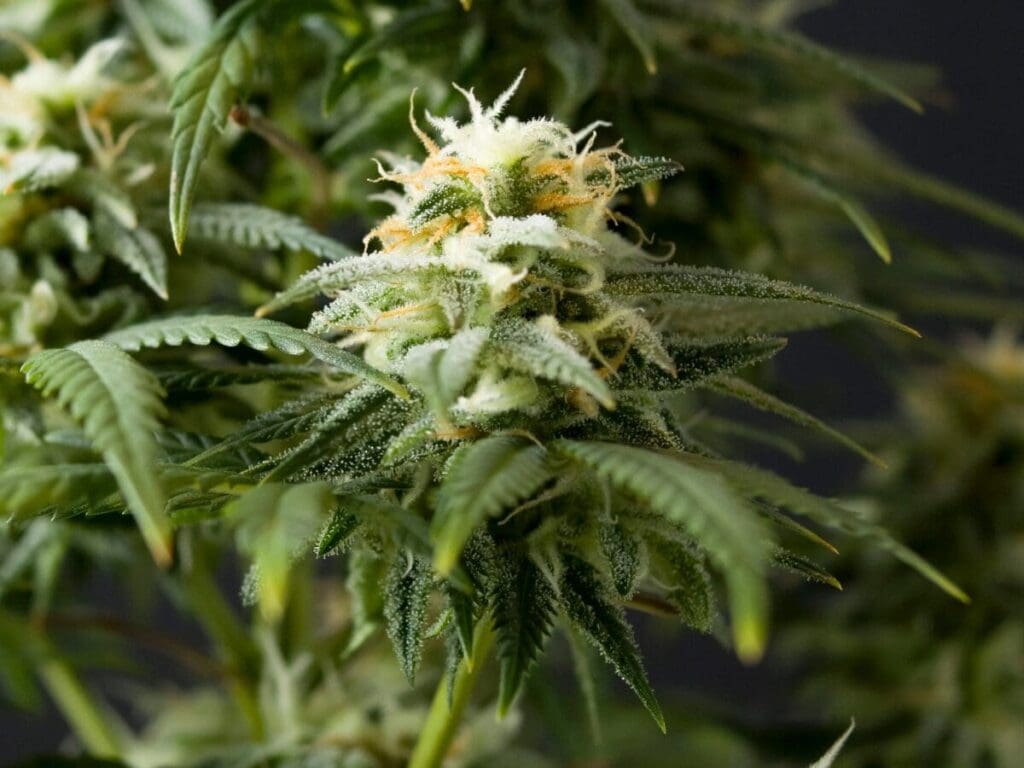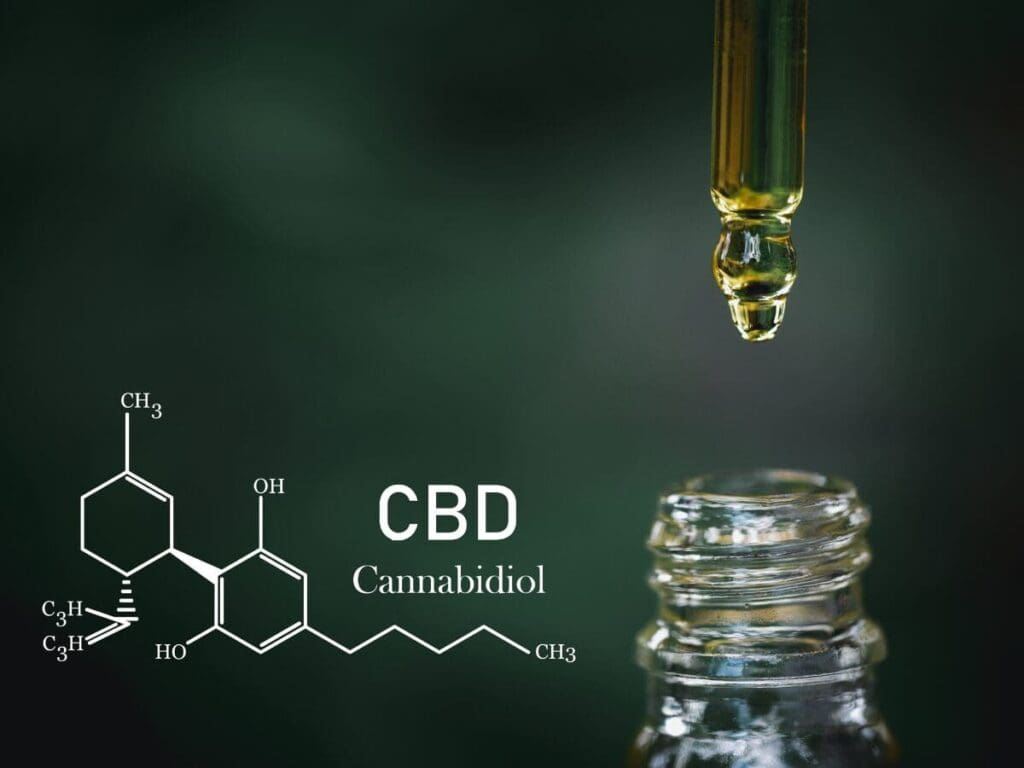Key Takeaways:
- Delta 8 vs Delta 9: Learn the key differences between these THC compounds and why Delta 8 is often considered a milder alternative.
- Arkansas Laws: Discover why Delta 8 is illegal in Arkansas and the consequences of possession.
- Legal Landscape: Get insights on potential future changes to Delta 8 laws in Arkansas.
Is Delta 8 THC legal in Arkansas? As more states embrace cannabis-derived products like Delta 8, understanding local laws can be confusing. In Arkansas, the legal status of Delta 8 remains a hot topic, with many unsure of the consequences of its possession or use.
At Happy Hemp, we pride ourselves on delivering top-quality, lab-tested hemp-derived products, helping our customers make informed choices. With years of experience in the hemp industry, our commitment to safety and compliance makes us a trusted leader.
In this article, we’ll clarify Delta 8’s legality in Arkansas, ensuring you have all the facts before making any decisions.
Federal Law And Delta 8 THC
The legal status of Delta 8 THC at the federal level is a subject of ongoing debate and uncertainty. Delta 8, a cannabinoid derived from hemp, has gained popularity for its psychoactive effects, which are milder than Delta 9 THC. While hemp and its derivatives were legalized under the 2018 Farm Bill, the specific legal standing of Delta 8 THC remains unclear due to varying interpretations and conflicting federal regulations. This ambiguity has led to a patchwork of state regulations. To understand the current landscape, it is essential to explore how federal law and the Drug Enforcement Administration (DEA) address Delta 8 THC and its production.
The 2018 Farm Bill And Hemp Legalization
The 2018 Farm Bill played a significant role in reshaping the legality of hemp and its derivatives. By legalizing hemp and its compounds, including CBD, as long as the Delta 9 THC concentration remains below 0.3% by dry weight, the bill indirectly opened the door for the production of Delta 8 THC. Since Delta 8 can be derived from legally grown hemp, many interpret its production and sale as permissible under federal law. However, the bill does not specifically address Delta 8 THC, leading to differing views on its legality.
DEA’s 2020 Interim Final Rule
In 2020, the Drug Enforcement Administration (DEA) issued an interim final rule that further complicated the legal status of Delta 8 THC. The rule clarified that all synthetically derived tetrahydrocannabinols are classified as Schedule I controlled substances under the Controlled Substances Act. This has raised concerns because most Delta 8 THC products are created by converting hemp-derived CBD into Delta 8. According to the DEA, if Delta 8 is considered synthetically produced, it could be deemed illegal at the federal level, contributing to the ongoing legal ambiguity.
Synthetic Versus Naturally Derived Delta 8 THC
One key point of confusion in the legal status of Delta 8 THC revolves around the method of production. Delta 8 occurs in small amounts naturally in hemp, but to produce it on a larger scale, most manufacturers convert CBD into Delta 8 through a chemical process. The DEA’s stance on synthetically derived tetrahydrocannabinols suggests that Delta 8 produced this way could be illegal. This distinction between natural and synthetic sources of Delta 8 is critical, as it impacts whether the substance is classified as a controlled substance under federal law.
State-By-State Regulation Of Delta 8 THC
Due to the federal ambiguity surrounding Delta 8 THC, states have taken matters into their own hands. Some states have explicitly banned Delta 8, citing concerns about its psychoactive effects and lack of federal oversight. Other states allow the sale of Delta 8 products, interpreting the 2018 Farm Bill as granting legal status to Delta 8 derived from hemp. This state-by-state regulatory approach has created a patchwork of laws, leaving consumers and businesses uncertain about the legality of Delta 8 products in various regions.
Legal Risks And Industry Implications
The uncertainty surrounding the legality of Delta 8 THC presents significant challenges for both consumers and the cannabis industry. While Delta 8 remains popular, especially in states where Delta 9 THC is still prohibited, its murky legal status raises the risk of federal enforcement or state-level bans. Additionally, businesses involved in the production, distribution, and sale of Delta 8 products face regulatory risks, as changes in federal or state laws could impact their operations. This legal gray area has prompted calls for clearer federal guidelines to address Delta 8 THC and its place within the hemp industry.
Looking for high-quality Delta 8 gummies? Explore Happy Hemp’s delicious selection of lab-tested, premium Delta 8 gummies. Enjoy a mellow, relaxing experience with products crafted for both flavor and effect. Shop now and elevate your wellness journey with safe, hemp-derived options!
Delta 8 Legal Status In Arkansas
In Arkansas, Delta 8 THC is considered illegal. The state has taken a strict stance on cannabinoids that cause psychoactive effects, including Delta 8. Under Arkansas law, any product that contains more than trace amounts of THC is classified as a controlled substance, making it illegal to possess, sell, or distribute Delta 8 within the state. This regulation applies even though Delta 8 is derived from hemp, as Arkansas has opted to align its laws more closely with federal restrictions on THC isomers.
The Arkansas Department of Health, along with law enforcement agencies, treats Delta 8 THC the same way it treats Delta 9 THC, meaning that products containing Delta 8 are subject to the same legal consequences as marijuana. Even though some states have embraced Delta 8 as a legal alternative to Delta 9, Arkansas has not, and residents should be aware of the potential legal risks involved in possessing or using Delta 8 products.

Current Laws Governing Delta 8 In Arkansas
The consequences of possessing, selling, or distributing Delta 8 THC in Arkansas are serious, as the state treats Delta 8 the same as it does Delta 9 THC. If you are caught with Delta 8 in Arkansas, the penalties can vary depending on the amount in possession and whether it is your first offense.
- Possession of small amounts: If an individual is found with less than four ounces of a THC product (including Delta 8), it is typically considered a misdemeanor. This can result in fines up to $2,500 and up to one year in jail.
- Possession of larger amounts or intent to distribute: Larger quantities or evidence that suggests intent to sell Delta 8 products can result in felony charges. Felony convictions can lead to much more severe penalties, including long-term imprisonment and substantial fines.
- Sale or distribution: The sale of Delta 8 THC is also treated as a serious offense. Those found selling or distributing Delta 8 face criminal charges similar to those involving marijuana, which could lead to significant jail time, especially for repeat offenders.
Given these strict consequences, it is crucial for Arkansas residents to understand that any involvement with Delta 8 THC carries legal risks.
What Alternatives To Delta 8 Are Legal In Arkansas?
While Delta 8 THC is illegal in Arkansas, there are other legal alternatives for individuals seeking the potential therapeutic benefits of hemp-derived products. These alternatives, such as CBD and hemp-derived compounds, are widely available and comply with both state and federal laws. Below is a list of legal options that provide relaxation and wellness benefits without the psychoactive effects of Delta 8 or Delta 9 THC.
- CBD (Cannabidiol) Products: CBD is a non-psychoactive compound derived from hemp that is legal and widely available in Arkansas. It can be found in various forms, including oils, tinctures, gummies, capsules, and topicals. CBD is known for offering therapeutic benefits such as relaxation, pain relief, and anxiety reduction without producing any intoxicating effects.
- Full-Spectrum CBD with Less Than 0.3% THC: These products contain a small, legal amount of THC (less than 0.3%) along with other cannabinoids and terpenes, providing an “entourage effect” that may enhance the overall therapeutic experience. Despite the trace amounts of THC, these products do not cause a high and are compliant with both Arkansas and federal laws.
- Broad-Spectrum CBD: Similar to full-spectrum CBD, broad-spectrum products contain multiple cannabinoids and terpenes but are completely THC-free. They offer many of the same potential benefits, such as pain relief and stress reduction, without any risk of psychoactive effects.
- CBD Isolate: For individuals looking for the purest form of CBD, isolates contain 99% pure CBD and no other cannabinoids. These products are ideal for those who want to avoid THC entirely while still enjoying the wellness benefits of cannabidiol.
- Hemp-Derived CBG (Cannabigerol): CBG is another non-psychoactive cannabinoid found in hemp. It is gaining popularity for its potential therapeutic properties, including anti-inflammatory, pain-relieving, and neuroprotective effects. Like CBD, it is legal in Arkansas and available in oils, capsules, and other forms.
These alternatives provide safe and legal options for individuals in Arkansas who are seeking the benefits of cannabinoids without breaking the state’s THC laws.

Final Thoughts
The legality of Delta 8 THC in Arkansas is clear: it is currently prohibited under state law. Despite its popularity in other parts of the U.S., Arkansas has taken a strict approach to regulating any THC-related substances, including Delta 8. The legal risks associated with possessing, selling, or using Delta 8 in Arkansas are significant, and residents should be aware of the consequences.
While future legislative changes could potentially alter the state’s stance on Delta 8, for now, it remains illegal. Anyone interested in using Delta 8 should stay informed about state and federal laws to avoid legal complications. As the landscape of cannabis regulation continues to evolve, individuals in Arkansas will need to watch closely for any developments that could impact the availability of Delta 8 in the future.
Read aslo:
- Delta 8 for Anxiety Relief – A Soothing Approach
- Using CBD for Acne Management
- CBD and Diabetes: Exploring the Potential for Blood Sugar Regulation
Frequently Asked Questions About The Legality Of Delta 8 In Arkansas
What is Delta 8 THC?
Delta 8 THC is a naturally occurring compound in cannabis, known for producing milder psychoactive effects compared to Delta 9 THC, the main compound in marijuana.
Is Delta 8 the same as Delta 9 THC?
No, Delta 8 and Delta 9 are both THC compounds but have different chemical structures. Delta 8 typically produces a more subtle high compared to the more potent Delta 9.
Why do people use Delta 8?
Many people use Delta 8 for its calming effects and the fact that it provides a less intense psychoactive experience than Delta 9 THC.
Can I travel with Delta 8 across state lines?
It depends on the states you are traveling to and from. While Delta 8 may be legal in one state, it could be illegal in another, such as Arkansas.
Is Delta 8 detectable in drug tests?
Yes, Delta 8 THC can show up in drug tests that screen for THC, as the tests do not distinguish between different THC isomers.
Are there any medical benefits to Delta 8?
Some users claim that Delta 8 offers therapeutic benefits like pain relief, reduced anxiety, and improved sleep, but more research is needed for confirmation.
What forms does Delta 8 come in?
Delta 8 can be found in various forms such as gummies, tinctures, vapes, and oils, offering flexibility in how users consume it.
How is Delta 8 different from CBD?
While both are derived from hemp, Delta 8 is psychoactive and produces a mild high, whereas CBD is non-psychoactive and used primarily for therapeutic purposes.
How long does the effect of Delta 8 last?
The effects of Delta 8 can last anywhere from 2 to 6 hours depending on the dosage and form consumed.
Is Delta 8 safe to use?
Delta 8 is generally considered safe, but it’s important to buy from reputable sources to ensure product quality and safety, as the market is largely unregulated.
Sources:
- Williams, R. (2023, September 11). Federal Judge blocks Delta 8 ban in Arkansas, trial date set for next year. 5newsonline.com; KFSM. https://www.5newsonline.com/article/news/local/federal-judge-blocks-delta-8-ban-jury-trial-date-set-2024/527-d6541264-f3cf-4cbb-80bb-d38acec95653
- Coop, G. (2023, April 26). Goodbye, Delta-8: Arkansas legislature banned rogue THC despite pleas from advocates. Arkansas Times. https://arktimes.com/news/cannabiz/2023/04/26/goodbye-delta-arkansas-legislature-banned-rogue-thc-despite-pleas-from-advocates
- Dees, S., Boyd, J., Dismang, J., Petty, J., Sullivan, D., Davis, B., Caldwell, Flippo, Gilmore, M., Mckee, C., Penzo, Stone, G., & Stubblefield. (n.d.). Stricken language would be deleted from and underlined language would be added to present law. Act 629 of the Regular Session 94th General Assembly A Bill SENATE BILL 358 3 4 Subtitle. https://www.arkleg.state.ar.us/Home/FTPDocument?path=%2FACTS%2F2023R%2FPublic%2FACT629.pdf







